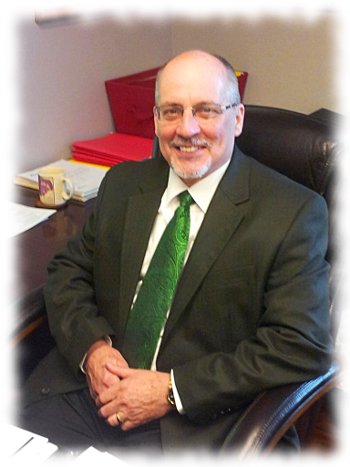Joy and Victory Ours in Christ
by Pastor Edwin Lehmann on November 12, 2018 in Philippians 3:12-21
The Twentieth Sunday after Pentecost October 7, 2018
Text: Philippians 3:12-21 Three Year Series A 18:2087
Theme: Joy and Victory Ours in Christ
What’s important to you? Home, cars, job, family? What?
Some 20-25 years ago our mission board received news that a then brand new $25,000 vehicle had been stolen from a missionary in Africa. That was a lot of money for a car back then. But little was made of it. In fact, nobody seemed to care. Now, that’s a lot of money to lose and to show little care about. But you have to know the rest of the story to understand the reason for the lack of concern about the money.
The missionary’s wife was returning home with their children in the brand new car. At the gate to their house, armed robbers stopped her and demanded the car. They pulled her and the older children out of it, but the baby was still inside, in the back, in a car seat. The robbers were about to drive off. However, as they backed up, the men drove into the wall which allowed the mother time to reach inside and rescue her baby before they sped away.
What a parent’s nightmare! Put a child on one side of the scale and an expensive car on the other. Is there a comparison in value? What’s important? To a parent nothing compares to the value of their child’s life. And to God nothing compares in value to your life.
I. Nothing compares to having Christ.
Life is important – not just physical life but eternal life. How is it received? “Not in yourself,” Paul answers, “but from the Lord. So, my brothers, rejoice in the Lord.”
“Rejoice!” That is Paul’s key word that appears regularly throughout this epistle. Here he emphatically adds the words “in the Lord.” Paul wants his dear Christian friends, whom he affectionately refers to as “my brothers,” he wants them to find their real joy and final victory in life in the Lord alone for they were in danger of losing that. False teachers to the Gospel were creeping into their midst. Robbers, so to speak, were threatening to take away their lives. “Watch out for those dogs,” he says, “those men who do evil, those mutilators of the flesh.”
Those are pretty strong terms to call people: “dogs,” “evil-doers,” “mutilators”? The first one might confuse you a bit – “dogs” – because in our day many people include dogs into their family as pets. But you have to consider that in the apostle’s world dogs generally were not pets. They were ugly beasts that roamed the streets, mean, scavengers, living on garbage. Certainly, those wouldn’t be terms used to describe people in the church?
Sadly, yes. These were people that were creeping into the church in Philippi. Outwardly, they didn’t appear to be vicious. In fact, they might have appeared to be upstanding men, men who were very precise in observing religious things. They followed closely whatever the ceremonial laws of the Old Testament had to say about making themselves pure and blameless. Today, many people would say they were living good, clean Christian lives. So then, why does Paul use such strong words against them?
Because these men were basing their status before God on whom they were and what they did. They were insisting that the outward performance of an act, like the OT custom of circumcision, was the thing that made them right before God.
People want to be right, don’t they? If I raise my hand to answer a question, I like to hear people say, “That’s right.” When I give advice, I like to hear, “You’re right.” When I offer solutions to a problem, I like to hear others say, “Oh, you’re right about that.” We like to be right and pride ourselves in it. Nowhere is there a greater need for us to be right than in our relationship with God.
Earlier in his life Paul thought the same thing. He strove to be the best of the best of people, well educated, outstandingly moral – no one compared to his high standards and human rightness. If that earlier Paul were alive today he would have been the type of person who wanted others to say of him, “Oh, I wish I could be as good and right as he is!” But it’s not really what others think that matters. When all is said and done, we need God to say to us, “You’re good and right before me!”
However, right before God means perfection – to be holy as He is holy. Yet when He looks at us He says, “All those right things that you think you do are nothing more than filthy rags in front of me.” Paul had to learn that and to switch his thinking from making himself right to having God make him right. And that could only happen through Jesus and what He did through His perfect life and all atoning death in our place. God mercifully opened Paul’s eyes to see that and to believe that Christ, and only Christ was the one who made Paul right before God. So it was that Paul wrote, “Whatever I used to think was to my profit, I now consider loss for the sake of Christ. I consider everything a loss compared to the surpassing greatness of knowing Christ Jesus my Lord, for whose sake I have lost all things (his own attempts at being right). I consider them rubbish, that I may gain Christ and be found in Him, not having a righteousness of my own …but the righteousness that comes from God and is by faith. I want to know Christ and the power of His resurrection.”
When all is said and done, we need God to say to us, “You’re right before me! And I’ve made you right when you could not make yourself right. I’ve made you right through Jesus who died to pay for your sins and rose from the dead to give you life. Joy and Victory Is Yours in Christ!”
So, dear friends, what’s important? What you do imperfectly or what Jesus has done perfectly for you? Nothing compares to having Christ and trusting in what He has done for you.
II. Nothing compares to the heavenly goal.
And nothing is more important than keeping Him in front of you. So Paul wrote, “One thing I do: Forgetting the things that are behind and straining toward the things ahead, I press on toward the goal, for the prize of the upward call of God in Christ Jesus.”
Remember what Paul’s life had been before he knew Christ. He killed Christians; he tried to wipe out the church; He attacked faith in Jesus wherever he could until Christ changed his thinking.
What if Paul kept thinking about that past? Knowing the horrible things he had done could have haunted him. But there was nothing he could change in what he had done. Confessing his sin he depended on Christ, rejoiced that Christ covers all sin, and he looked to what still lay ahead – work in God’s Kingdom, being an example in faith to others, and then heaven. All of that still lay ahead of him. So Paul learned to let go of the past and press onward in faith in Christ. Joy and Victory was in Him and nothing compared to the heavenly goal that awaited.
You know, dear friends, it does you no good to keep looking back at your past sins and failures and continuously grieving over them. Repent, yes, but don’t keep looking back. Some people do that and end in despair like Judas. Instead of casting their lives at Jesus’ feet, trusting that His blood cleanses from all sin, and then going forward, they live in the past. Such living in the guilt of past sins leads to one place – despair.
Likewise looking back at the good you think you’ve done and patting yourself on the back as though God has to take you in because you are so good, is not going to help you anymore than it would have helped Paul. That leads to pride and self-righteousness. Such looking back gets you nowhere and makes you an enemy of the cross. Looking back in either way will only get you off track
Paul uses the example of a determined athlete, a runner in a race. As he runs he concentrates on the goal line in front of him. A lack of concentration or overconfidence can cost him dearly. When he’s in the race, he doesn’t look to the right, or to the left, and most certainly he does not look behind him. Looking back while running ahead can only result in a lack of speed and direction. If the runner does, he’ll fall or wander off course.
Likewise a lack of concentration on that which lies ahead of us can cost a Christian Keep your eyes ahead of you, on Christ, what He does for you now, where He is taking you in faith. Nothing compares to the heavenly goal that lies ahead. Or, as the hymnist said, “I’m but a stranger here; heaven is my home.” That’s where our real citizenship is, that’s where our Joy and Victory is complete. And it’s all because of Christ. How important is He in your life? Nothing compares to Him or the goal He has set before you. God grant that in our lives of faith for Jesus’ sake. Amen.

